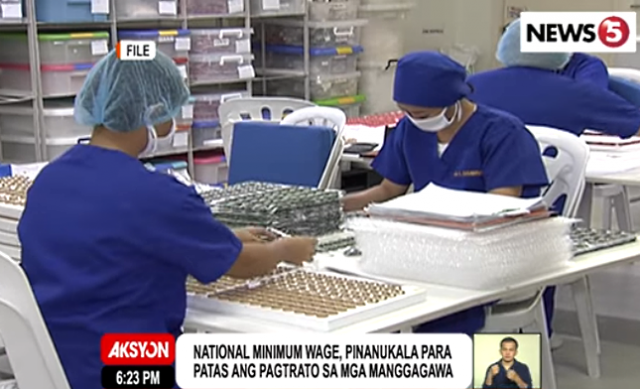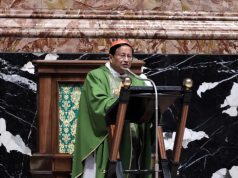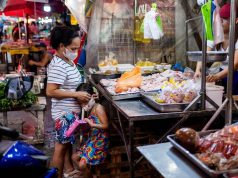
The labor sector called for action toward a national minimum wage rate that will achieve parity between workers’ earnings in and out of Metropolitan Manila.
While President Rodrigo Duterte has expressed a positive attitude toward the idea, there are those who see hurdles in legislation that can get in the way of a move toward a national minimum wage.
However, Julius Cainglit, Vice President of the Federation of Free Workers, points out that the disparity is forcing an unrealistic distortion of the job market toward the National Capital Region, where the average wages are comparably higher than those in the countryside.
“While there might be investments and business being established out Metro Manila, the labor force prefers to take their chances looking for jobs in the city, where the salaries are higher. So, we see the national minimum wage as a solution to labor inequality, a solution that will help strengthen the economy.”
Vicente Camilon, Asst. General Secretary and Spokesperson of the Trade Union Congress of the Philippines, pointed out that, with a functional national minimum wage structure, labor migration will be eased back. Workers in the provinces will just stay where they are, with the same purchasing power.”
Based on the government’s own calculation, the so-called living wage for a family with six children is PhP1,200 a day.
But any prospective change in the minimum wage has to pass through Regional Wage Boards, which set respective wage structures in local jurisdictions, and tend to stand in the way of arriving at a rationalized national minimum wage architecture.
Click and watch the video report below:









